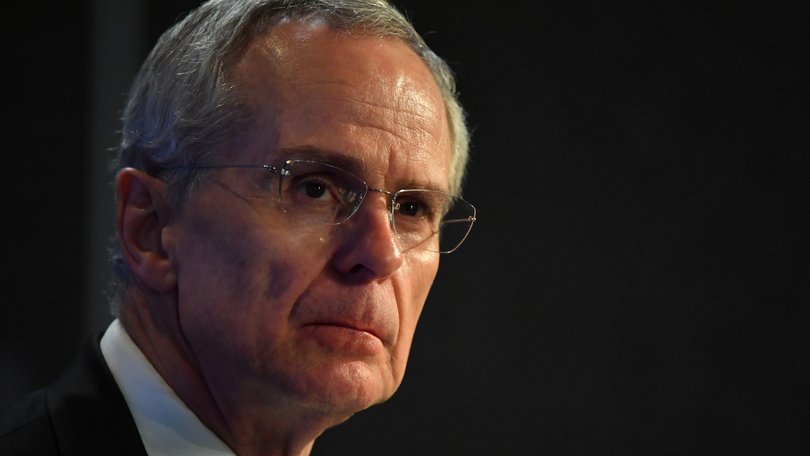Former ACCC boss Rod Sims says ‘Made in Australia’ push could destroy green dream

A single-minded “Made in Australia” approach could destroy Australia’s hopes of becoming a renewable energy superpower and risks driving up costs and lowering productivity, a former competition tsar has warned.
Former ACCC boss Rod Sims has added his voice to the growing chorus of critics of the philosophy behind the Federal Government’s plan to turbo-charge local manufacturing and the green transition.
Mr Sims is now the chair of the Superpower Institute, a thinktank that advocates policies to help unlock the economic riches of the green economy, including a carbon tax.
Sign up to The Nightly's newsletters.
Get the first look at the digital newspaper, curated daily stories and breaking headlines delivered to your inbox.
By continuing you agree to our Terms and Privacy Policy.In a speech in Melbourne on Wednesday, Mr Sims warned a “Made in Australia” approach would “destroy the Superpower opportunity”.
He said a focus on locally made products would hinder our ability to capitalise on a clear comparative advantage in producing green energy-intensive exports.
Without referencing Prime Minister Anthony Albanese’s recent announcement of a $1 billion program to boost domestic solar panel production, Mr Sims questioned how Australia could produce cheap renewable energy if it was “saddled” with expensive solar panels, wind farms and electrolysers.
“Under this form of ‘Made in Australia’ approach, Australia will not achieve the lower cost inputs to the supply of such goods, so Australia will not be cost competitive in their supply,” he told the Melbourne Economic Forum.
Mr Sims said such an approach would also “displace” scarce budget funds and drive workers into industries where Australia is not competitive, leaving shortages in industries where it is.
He said the Superpower Institute’s view was the only goods that should be made in Australia were products where the “economics have flipped”, such as green iron.
Australia could become an exporter of these energy-intensive green products to Japan, Korea and even China, which all lack the renewable energy resources needed to meet their domestic electricity needs.
Mr Sims said the focus must be on exports, warning the Federal Government it would be a mistake to replicate the “internally focussed” Inflation Reduction Act in the US.
“Australia cannot afford to follow this lead. Nor will it suit the world,” Mr Sims said.
Mr Sims said there was a role for taxpayer-funded assistance, so long as it was directed at industries where Australia does or will have a comparative advantage.
He said it was unclear what “Made in Australia” advocates were ultimately seeking, inviting the question of whether subsidies could be offered to make computers, cars and clothing.
“Without a clear framework Australia will take a series of ad hoc measures that invite rent seeking by businesses, raise Australia’s cost structure and lower our productivity,” he said.
